
On the afternoon of the 26th November 1922, in Egypt's Valley of the Kings, four excited Egyptologists stood before a dusty, ancient doorway blocked with stone and marked with mysterious hieroglyphs: the seals of the boy Pharaoh, Tutankhamun, and Anubis, the jackal god of the dead. At the head of the party was the British archaeologist Howard Carter, accompanied by Lord Carnarvon (his sponsor and the owner of Highclere Castle), Carnarvon's daughter, Lady Evelyn Herbert, and Carter's assistant, Mr Arthur Callender. Taking a chisel, Howard Carter carefully prised out a hole at the top of the entrance, lit a candle and peered into the chamber. Carter described the discovery in his book The Discovery of the Tomb of Tutankhamen (1924): ...as my eyes grew accustomed to the light, details of the room within emerged slowly from the mist, strange animals, statues, and gold everywhere the glint of gold... Lord Carnarvon, unable to stand the suspense any longer, inquired anxiously, "Can you see anything?" It was all I could do to get out the words, "Yes, wonderful things".
So the legend of Tutankhamun was born. Over the next 10 years, Carter's team removed 5,000 precious artefacts from the four chambers of the Pharaoh's tomb. "Tutmania' became a craze almost instantaneously, with Egyptian motifs appearing on everything from architecture, furniture and porcelain tea sets to women's fashion, jewellery, scent bottles and powder compacts. From Louise Brooks' sleek dark bob to Huntley & Palmers' Tutankhamun biscuit tin, from the King Tut Fox Trot to Palmolive Cleopatra soap: you name it, it all went Tut. If the 1920s was a decade of crazes (ping-pong, mahjong, crosswords, pogo sticks, miniature golf and yo-yos), then the Tutankhamun craze was the craze to outlast them all.
この記事は Homes & Antiques の November 2022 版に掲載されています。
7 日間の Magzter GOLD 無料トライアルを開始して、何千もの厳選されたプレミアム ストーリー、9,000 以上の雑誌や新聞にアクセスしてください。
すでに購読者です ? サインイン
この記事は Homes & Antiques の November 2022 版に掲載されています。
7 日間の Magzter GOLD 無料トライアルを開始して、何千もの厳選されたプレミアム ストーリー、9,000 以上の雑誌や新聞にアクセスしてください。
すでに購読者です? サインイン
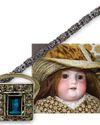
Lisa Coppin
The Cotswold Company’s chief creative officer shares the pieces that mean so much to her

TRAVEL
Six of the best pineta, plus a festive trip to Covent Garden. Review of The Orange, Belgravia by Katie Pike, travel stories
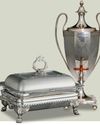
OLD SHEFFIELD PLATE
Stumbled upon by chance, this ingenious material was a more affordable option than solid silver, and well-preserved examples are particularly desirable today
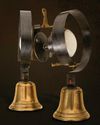
Merrily on high
Summoning servants since the 1700s, bell boards create instant English country-house style (even if you don't have any servants). Emma Longstaff dons her pinny
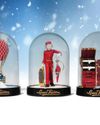
Let it snow
Nostalgic, magical and highly collectable, snow globes are curious objects of wonder that never fail to instil joy
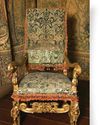
Velvet Crush
Once the preserve of the wealthy, velvet finally touched all levels of society, thanks to advances in its production process

Celebrating in the Stable
Antiques dealer Julia von Hülsen specialises in Gustavian pieces - all of which look perfectly placed in her German home
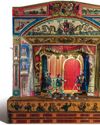
THE SHOW MUST GO ON
Victorian toy theatres charming and exquisitely designed miniature worlds have inspired theatre royalty for decades. Today, the tradition is being kept alive by a small but talented network of makers

NICHOLAS LEES
The ceramic artist talks to Dominique Corlett about new ways of working with clay and blurring the edges of solid objects

Candy CHRISTMAS
Pastel hues, vintage decorations and bowls of sweet treats: the festive run-up is gloriously joyful at Bettina Færgeman's historic Copenhagen apartment, where there's an emphasis on entertaining...